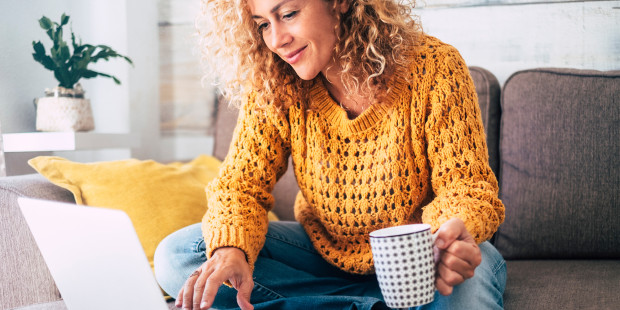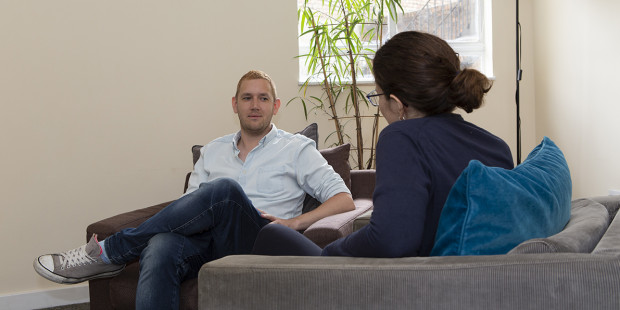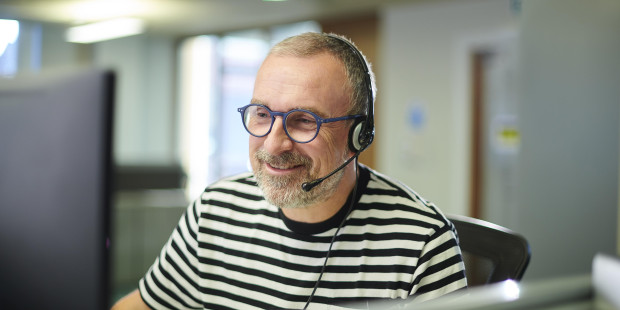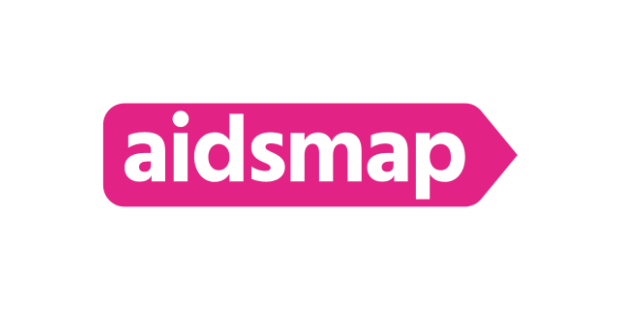Anxiety is a common response to stress and its symptoms can be as mild as a feeling of unease or worry, or as severe as having a panic attack.
Common symptoms of anxiety include:
- excessive worry
- feeling on edge
- difficulty concentrating
- fatigue
- irritability
- muscle and/or jaw tension
- disturbed sleep
- changes in appetite
- changes in libido
- increased desire to drink alcohol or use drugs
- rapid heart rate
- sweating and flushes
- panic attacks.
What should I do if I experience anxiety?
You can explore ways of overcoming anxiety by talking with your doctor, friends and family.
If you regularly find yourself experiencing anxiety, learning to recognise what triggers those feelings could be a good way to help reduce them.
For example, if going to see your HIV doctor for your latest CD4 count makes you feel uneasy then you could research how CD4 counts work. Understanding something that makes you feel helpless can help you to deal with it.
Reducing the amount of caffeine you drink and taking regular exercise can help reduce levels of anxiety.
Are people with HIV more likely to experience anxiety?
Although everyone can experience anxiety from time to time, if you’re living with HIV you are much more likely to experience this regularly.
The Yale University AIDS Program found that as many as 38% of people with HIV will encounter an anxiety disorder.
It’s perfectly normal to experience some anxiety alongside the ups and downs of managing a long-term condition such as HIV. You may find that your anxiety levels rise in the months following your diagnosis or as you begin antiretroviral treatment.
How is an anxiety disorder different from anxiety?
It’s important to remember that anxiety itself is not a mental health disorder but a natural response to fear and uncertainty.
Anxiety has evolved to help protect us from danger, but when it becomes extreme or uncontrolled it can lead to an anxiety disorder, which can have a negative effect on your life and health.
An anxiety disorder can arise from a set of circumstances and reactions that are unique to you, so treatment usually matches this with a combination of counselling or psychotherapy and medication to help you through a tough period.
Anxiety tips from our counsellors
1. Take a deep breath
The first thing to do when you start to feel anxious is to breathe.
This may seem obvious, but many of us unconsciously make ourselves feel worse when anxious by breathing in short, shallow breaths into our chests.
Deep diaphragmatic breathing is a powerful anxiety-reducing technique because it activates the body’s relaxation response, helping you calm down.
The correct breathing technique
- Slowly inhale to a count of four, filling your belly first and then your chest.
- Slowly exhale to a count of four.
- Gently hold your breath to a count of four.
- Repeat this several times.
2. Accept that you’re anxious
Acceptance is critical because trying to ignore, mask or eliminate anxiety often worsens it. It just perpetuates the idea that your anxiety is intolerable.
Anxiety is just a feeling, like any other feeling. Reminding yourself that anxiety is simply an emotional reaction is a way to begin to start to accept and live with anxiety as part of the human experience.
Accepting your anxiety doesn’t mean liking it or resigning yourself to a miserable existence. It does mean that you will survive these feelings and grow greater resilience as your acceptance develops.
If you suspect you might've developed an anxiety disorder, you should speak to your doctor or a counsellor right away.
3. Question your thoughts
When you're anxious, your brain can start coming up with all sorts of strange ideas, many of which are highly unrealistic and unlikely to occur. These thoughts only heighten your already anxious state.
Ask yourself these questions when challenging your thoughts:
- Is this worry realistic?
- Is this really likely to happen?
- If the worst possible outcome happens, what would be so bad about that?
- Could I handle that?
- What might I do?
- If something bad happens, what might that mean about me?
- Is this really true or does it just seem that way?
- What might I do to prepare for whatever may happen?
4. Use a calming visualisation
If you practise the following meditation regularly, it will be easier for you to access the moment you get anxious.
Picture yourself outside in a park, garden, field or beach. Watch clouds pass by in the sky. Assign your emotions, thoughts and sensations to the clouds and leaves, and just watch them float by.
This is very different from what people typically do. Typically, we load emotions, thoughts and physical sensations with certain qualities and judgements, such as good or bad, right or wrong. This often intensifies anxiety.
5. Be an observer without judgement
Practise observing your thoughts, feelings, emotions, sensations and opinions with compassion and without judgement.
6. Focus on right now
When people are anxious, they're usually obsessing about something that may occur in the future, or have occurred in the past.
Instead of worrying, pause, breathe and pay attention to what’s happening right now.
7. Focus on meaningful activities
When you’re feeling anxious, it’s also helpful to focus your attention on a meaningful, goal-directed activity.
Do easy tasks that you’ve been putting off: organise your kitchen cupboards or tidy your bedroom.
The worst thing you can do when anxious is to passively sit around obsessing about how you feel.
If you’re able to live your life even though you’re anxious then you’ll get things done. Don’t sit around focusing on being anxious.
Mind, the UK mental health charity, have some tips for self-care for anxiety.






